This collection brings together skyscrapers that showcase advances in modern engineering and architecture worldwide. These structures rise above metropolises and reshape city horizons, from the sail-shaped Burj Al Arab in Dubai to the CCTV headquarters in Beijing with its two linked towers. Each building reflects a unique architectural approach and technical innovations tailored to its environment. The selection spans all continents and features buildings with various functions. The Petronas Towers in Kuala Lumpur, 452 meters high and connected by a sky bridge, stand alongside New York’s One World Trade Center, which reaches 541 meters. The Lakhta Center in Saint Petersburg is notable for its twisted glass facade, while the Torre Costanera in Santiago offers panoramic views of the Andes. Whether residential buildings like the Eureka Tower in Melbourne or commercial structures such as the Kingdom Centre in Riyadh, these constructions demonstrate how contemporary architecture shapes 21st-century cities.
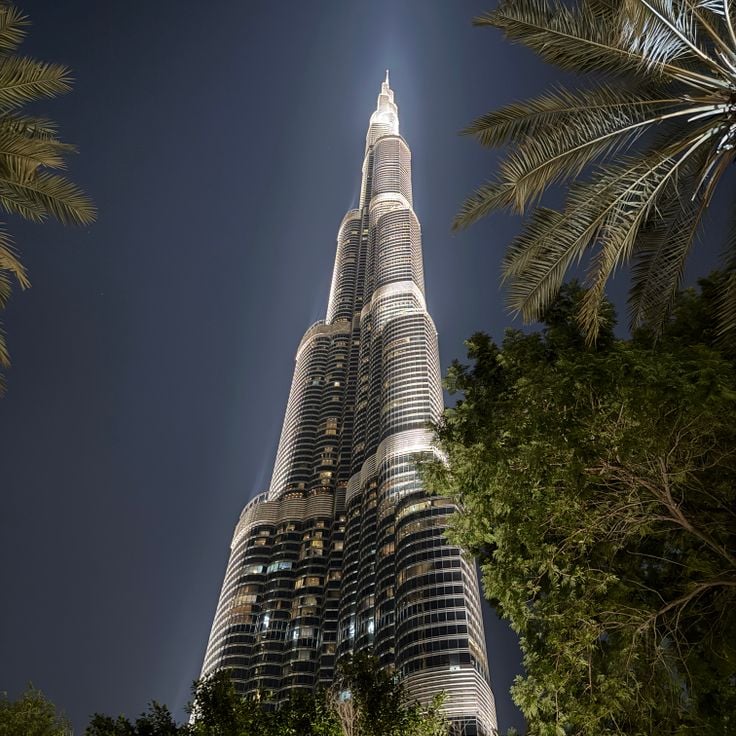
Dubai, United Arab Emirates
The Burj Khalifa rises to 828 meters in Dubai's sky and has maintained its status as the tallest building in the world since its opening in 2010. This 163-story tower houses offices, luxury apartments, the Armani hotel, and an observation platform on the 124th floor offering panoramic views of the emirate and the Persian Gulf.
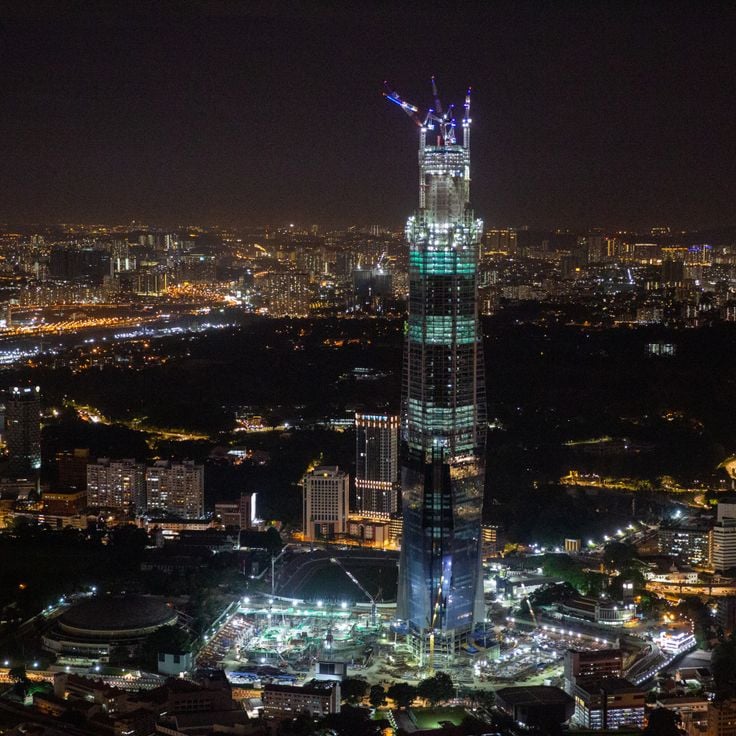
Malaysia
Merdeka 118 is a mixed-use skyscraper located in the heart of Kuala Lumpur, housing offices, retail spaces, and residences. The building stands at 678.9 meters tall and its shape is inspired by the silhouette of Tunku Abdul Rahman, Malaysia's first prime minister, raising his hand to declare the country's independence.
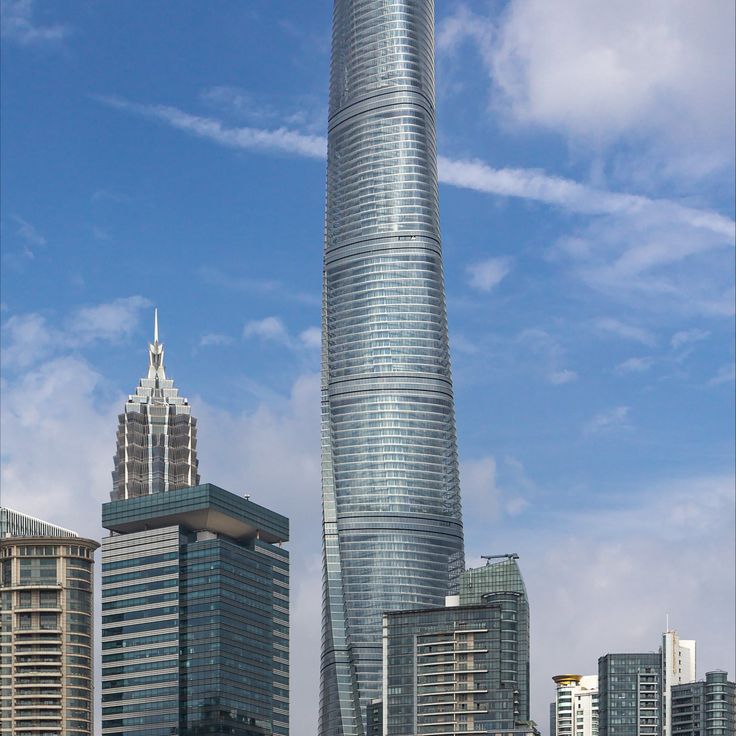
Shanghai, China
The Shanghai Tower stands at 632 meters tall and contains 128 floors housing offices, hotels, and retail spaces. This tower is distinguished by its spiral shape, which rotates 120 degrees from its base to its top, resulting in a recognizable silhouette in Shanghai's cityscape.
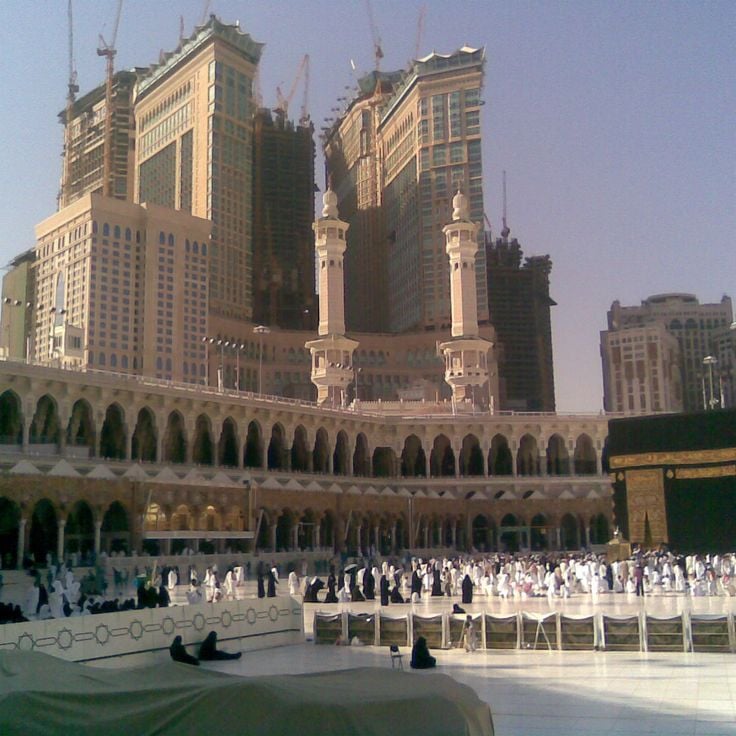
Mecca, Saudi Arabia
The Abraj Al-Bait Clock Tower rises 601 meters in the heart of Mecca and overlooks the Grand Mosque esplanade. Its giant dial measuring 43 meters in diameter is among the largest in the world, while its LED lighting allows the time to be read from a distance of 25 kilometers. This multifunctional complex houses several luxury hotels, a modern conference center, and a large shopping mall spread across multiple floors, providing comprehensive services to the millions of pilgrims visiting the holy city each year.
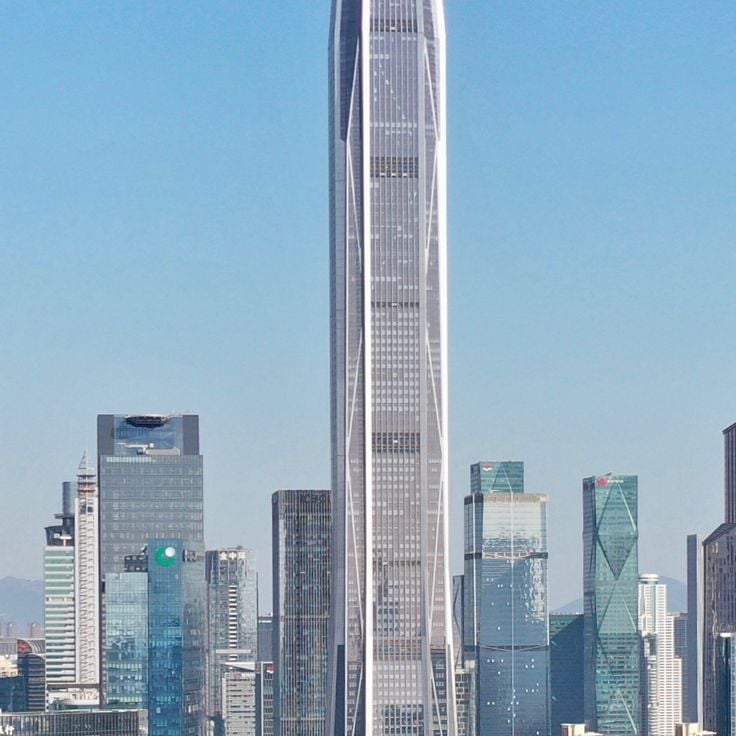
China
The Ping An Finance Centre rises to 599 meters in the Futian district of Shenzhen, China, making it one of the tallest towers in the world. This imposing structure dominates the city's skyline and symbolizes China's economic and architectural development.
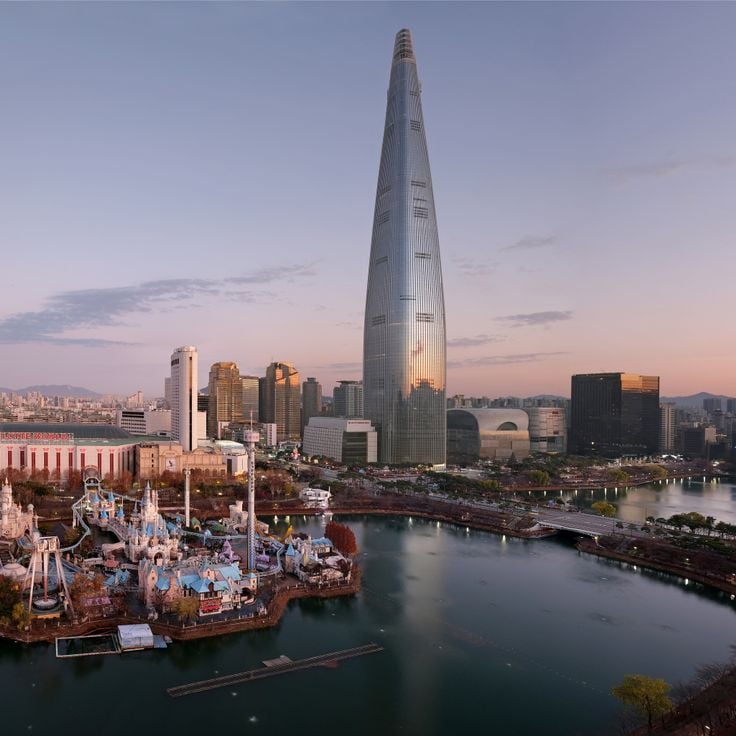
Seoul, South Korea
The Lotte World Tower rises to 555 meters and contains 123 floors. The building accommodates office spaces, a luxury hotel, retail areas, and public observation decks on its upper levels.
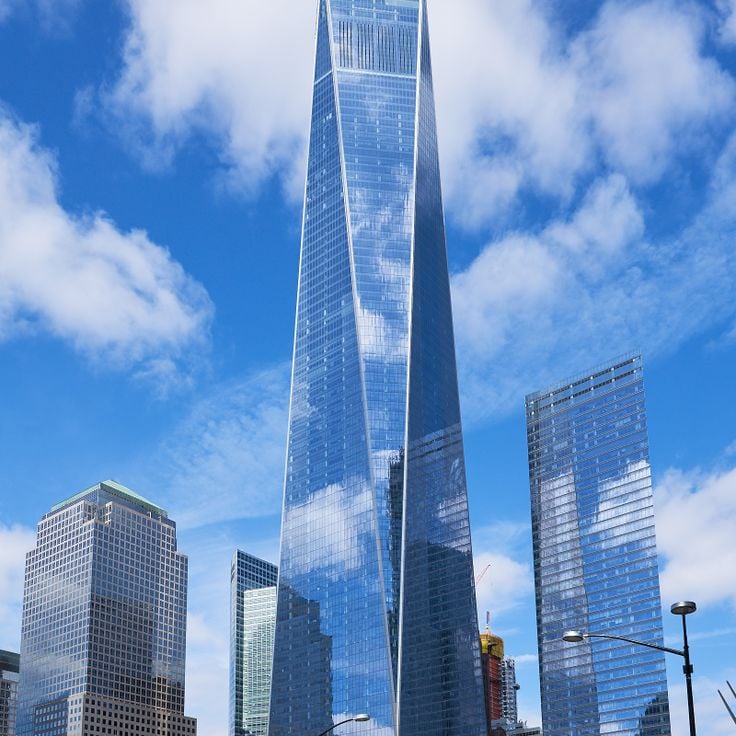
New York, USA
This skyscraper reaches a height of 541 meters and was completed in 2014. The building contains 94 floors and stands in Manhattan's Financial District.
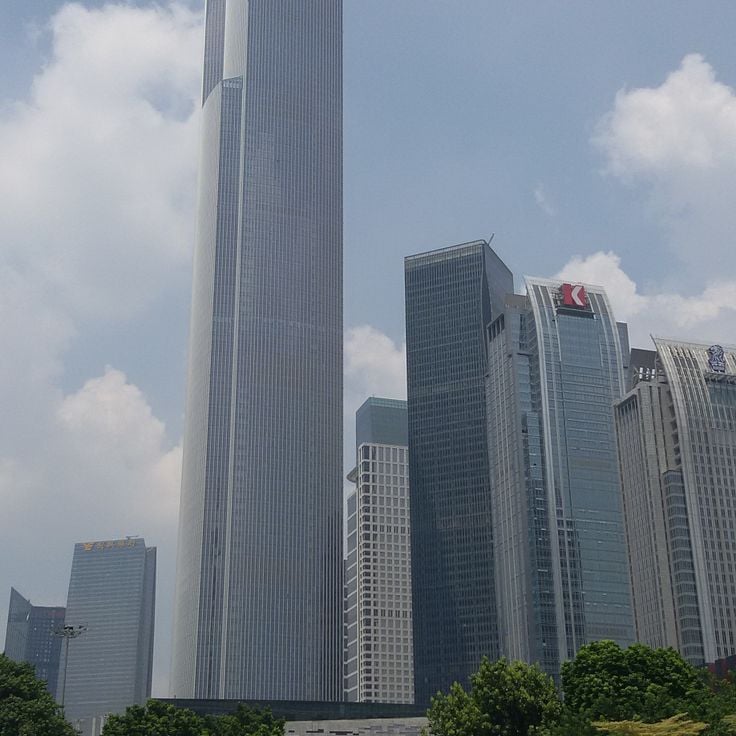
China
The CTF Finance Centre stands in the Zhujiang New Town district and is one of Guangzhou's tallest towers at 530 meters. This postmodern building, completed in 2016, houses offices, a hotel, and a shopping mall. Its glass and steel facade features vertical sections that visually slim the structure. The building is equipped with high-speed elevators and offers views of the Pearl River and the wider city.
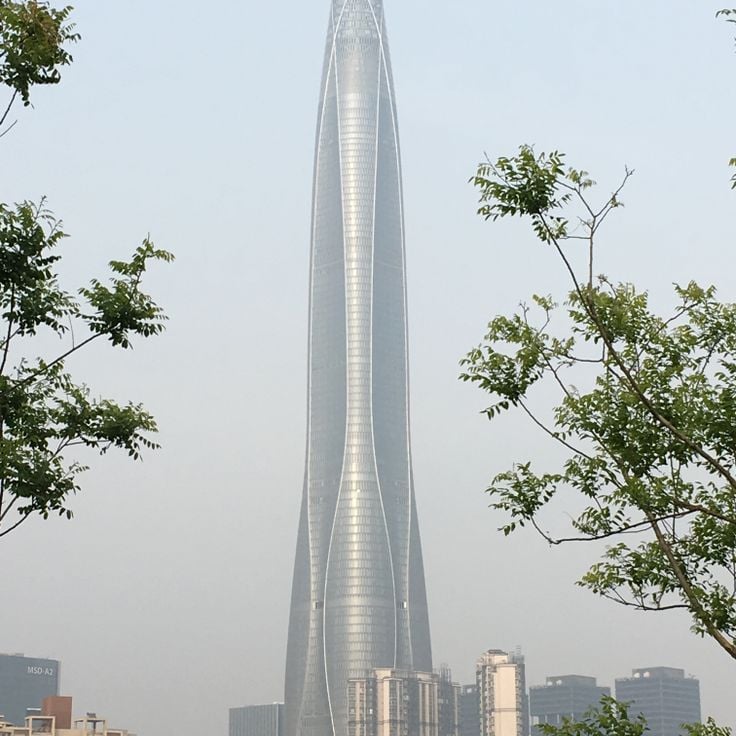
China
The Tianjin Chow Tai Fook Binhai Center is located in Binhai New Area in Tianjin, China. This office and retail tower rises 530 meters tall with 97 floors, making it one of the tallest skyscrapers in the country and the dominant structure in Binhai's financial district.
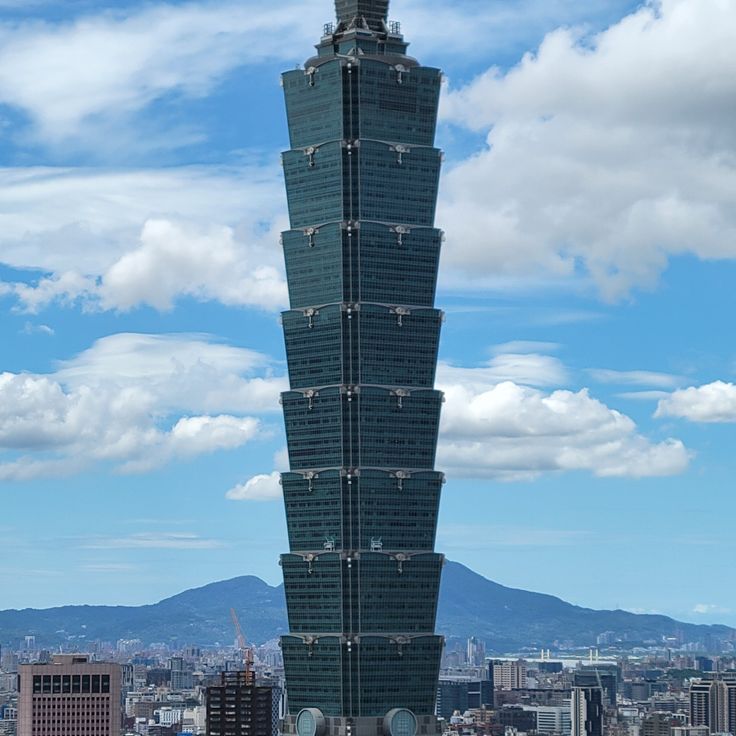
Taipei, Taiwan
Taipei 101 reaches a height of 508 meters and was designed by architect C.Y. Lee. The building has 101 floors and held the record as the world's tallest structure between 2004 and 2010. The construction combines traditional Chinese architectural elements with modern engineering techniques and was developed to withstand earthquakes and typhoons.
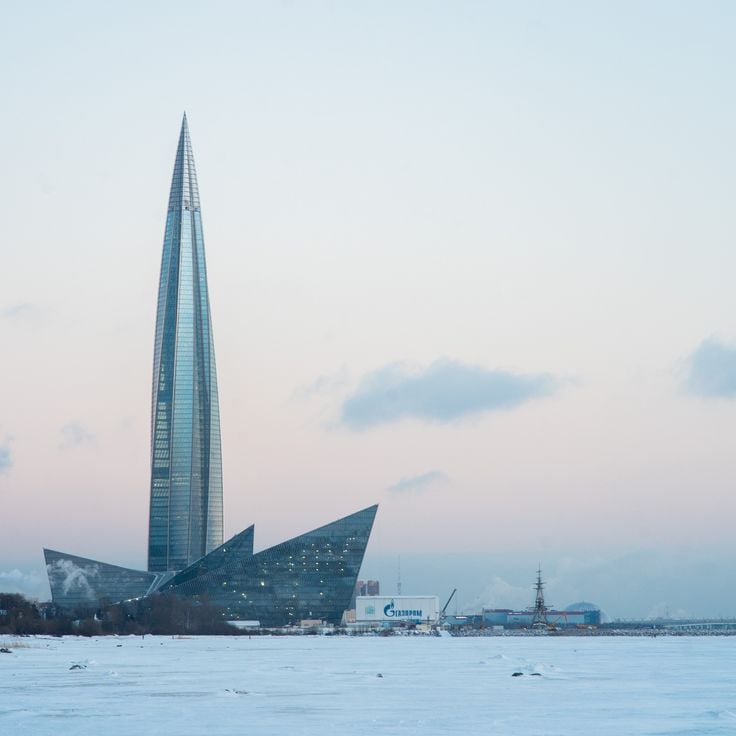
Saint Petersburg, Russia
The Lakhta Center, with its height of 462 meters and its spiral glass facade, houses the headquarters of the energy company Gazprom and is the tallest building in Europe, dominating the Saint Petersburg skyline with its rotating modern architecture.
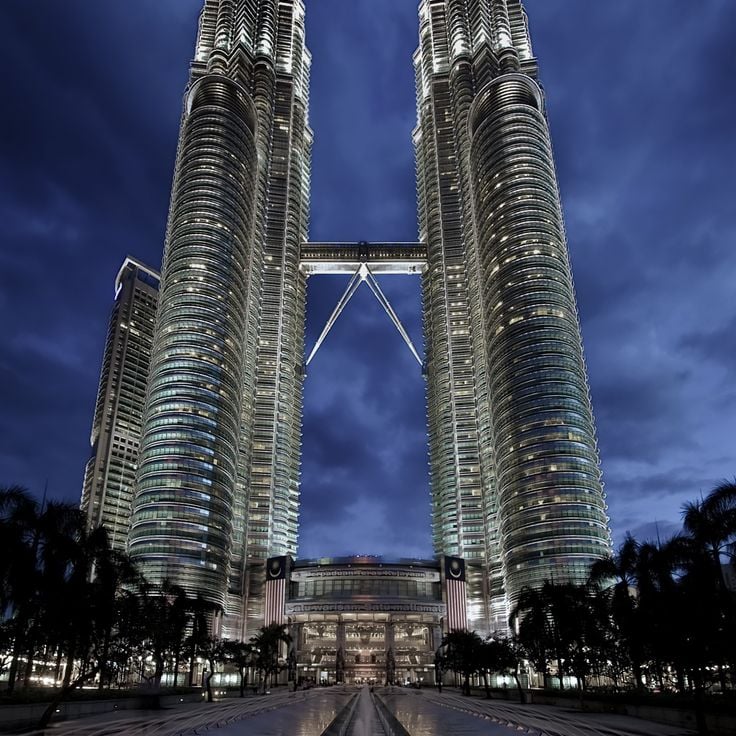
Kuala Lumpur, Malaysia
The Petronas Towers were constructed between 1992 and 1998 following designs by Argentine architect César Pelli. These twin towers reach a height of 452 meters and comprise 88 floors. A double-deck skybridge connects the two buildings at 170 meters above ground, between the 41st and 42nd floors. The construction features a reinforced concrete core structure with steel and glass cladding on the facades. The towers house Petronas headquarters, international corporate offices, the Kuala Lumpur Philharmonic Hall at the tower base, and an observation deck on the 86th floor. The architectural design incorporates geometric patterns inspired by Islamic art.
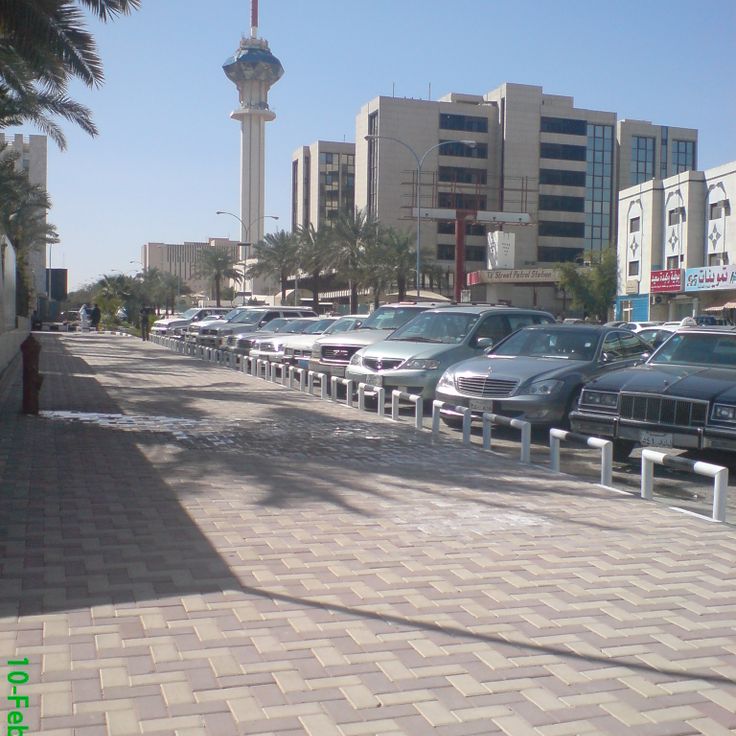
Riyadh, Saudi Arabia
The Tour de Riyad rises 385 metres above the Saudi capital, combining multiple functions within a single structure. The lower floors house a shopping centre with retail outlets and restaurants. Above these are office spaces occupied by businesses and administrative entities. On the 99th floor, an observation deck provides visitors with panoramic views across the city and the surrounding desert landscape. The construction was completed as part of Riyadh's urban development programme and contributes to the metropolis's vertical expansion.
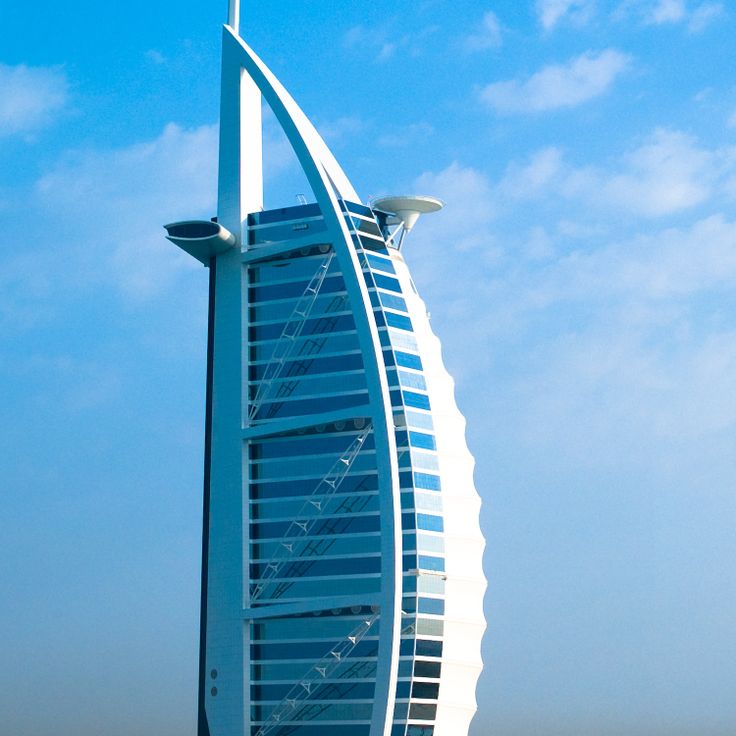
Dubai, United Arab Emirates
The Burj Al Arab stands on an artificial island located 280 meters off Dubai's shore and overlooks the Persian Gulf at a height of 321 meters. This luxury hotel opened in 1999 and features a sail-shaped architecture designed by architect Tom Wright. The structure rests on 230 pylons sunk 45 meters into the sand and includes 202 suites spread over 56 floors. The building has a facade covered with white Teflon panels that reflect sunlight and emphasize its distinctive maritime profile within Dubai's urban landscape.
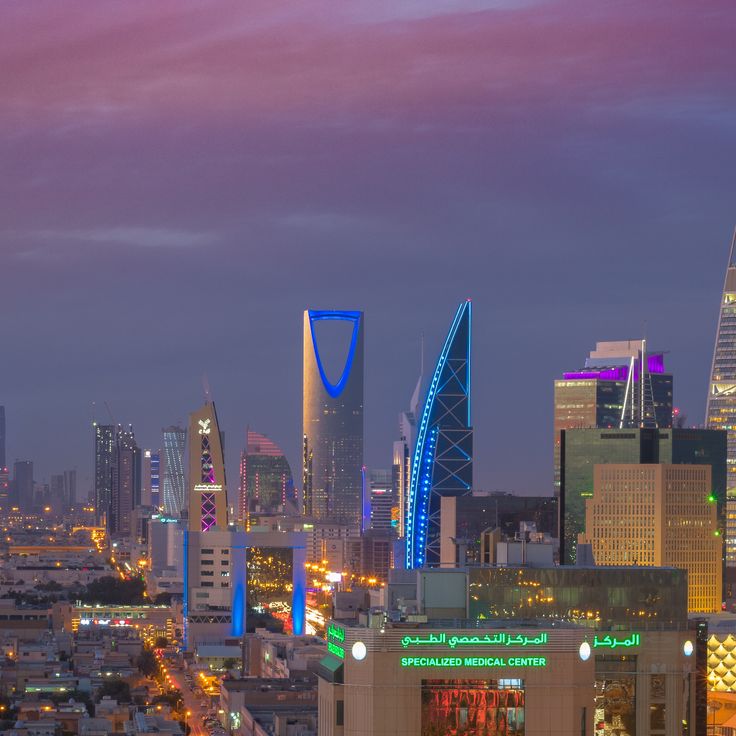
Riyadh, Saudi Arabia
This tower reaches a height of 302 meters and defines the skyline of the Saudi capital. The distinctive parabolic opening at the top creates a recognizable landmark visible across the city. Inside, office spaces, a luxury hotel, and a multi-level shopping center with international brands occupy the structure.
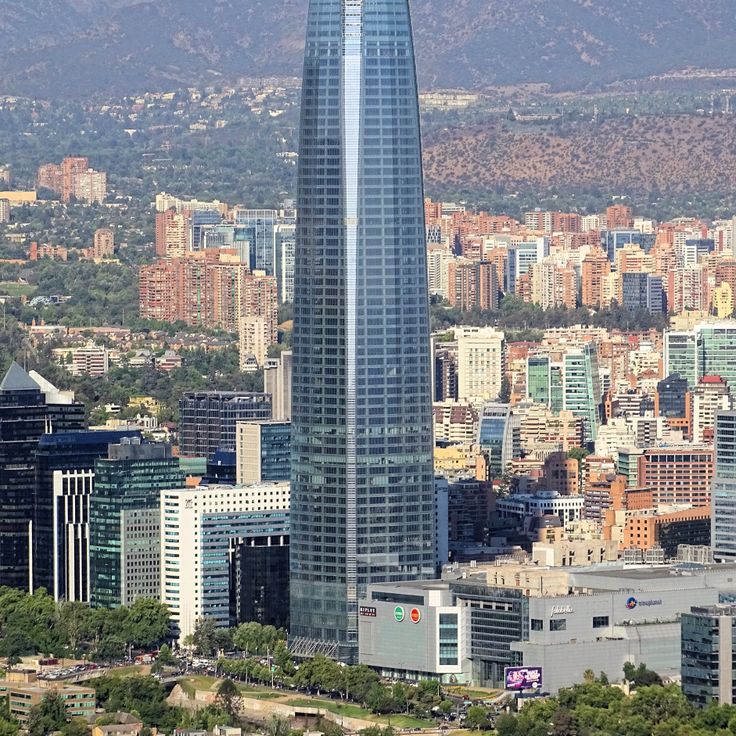
Santiago, Chile
The Costanera Tower rises 300 meters above Santiago and spans 62 floors of office spaces and commercial zones. This glass tower houses an observation deck that offers views of the Chilean capital and the Andes mountain range from above.
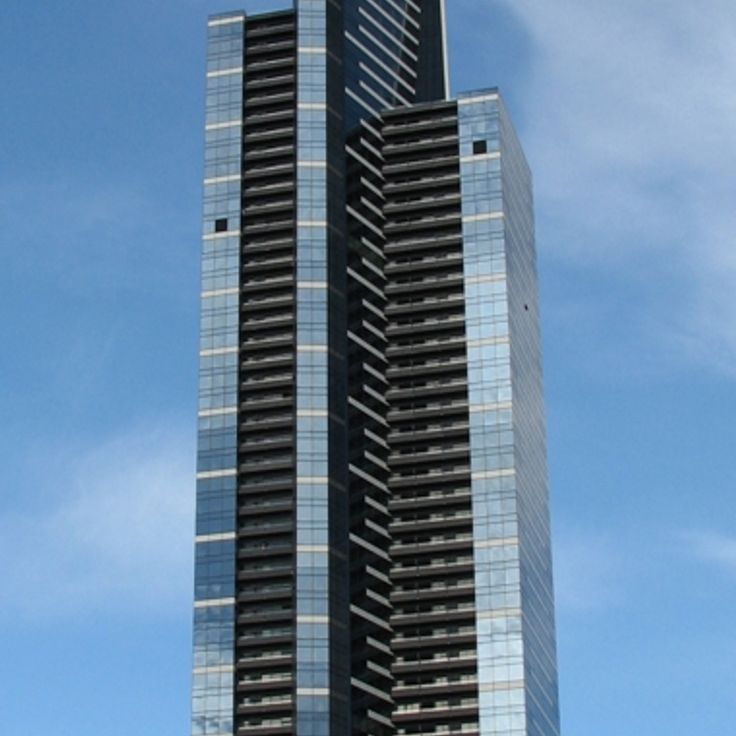
Melbourne, Australia
This residential tower reaches a height of 297 meters and contains 91 floors. The upper levels feature gold and red cladding, referencing Australia's gold rush era.
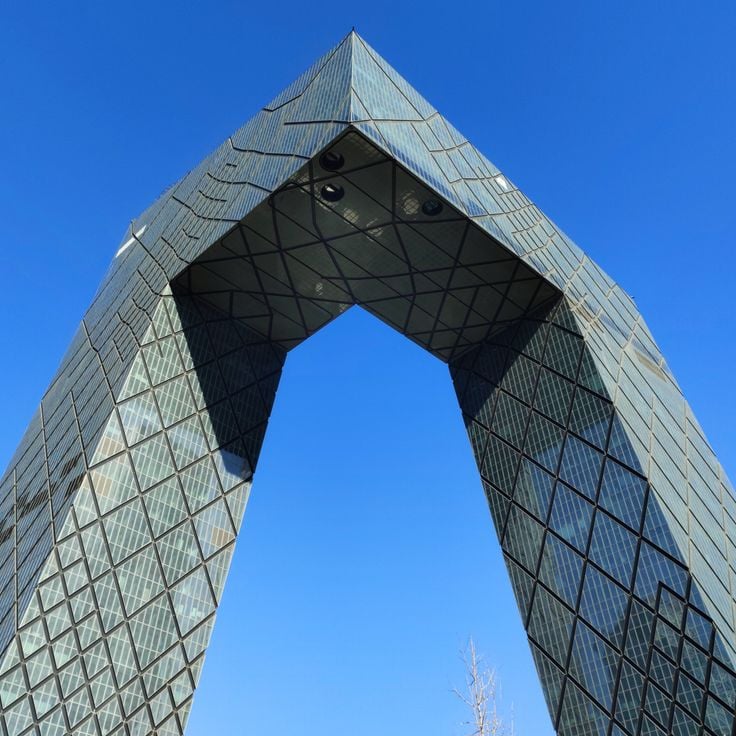
Beijing, China
This building reaches a height of 234 meters and features two leaning towers connected by an upper and lower bridge to form a continuous loop. The structure was designed by architecture firm OMA and completed in 2012.
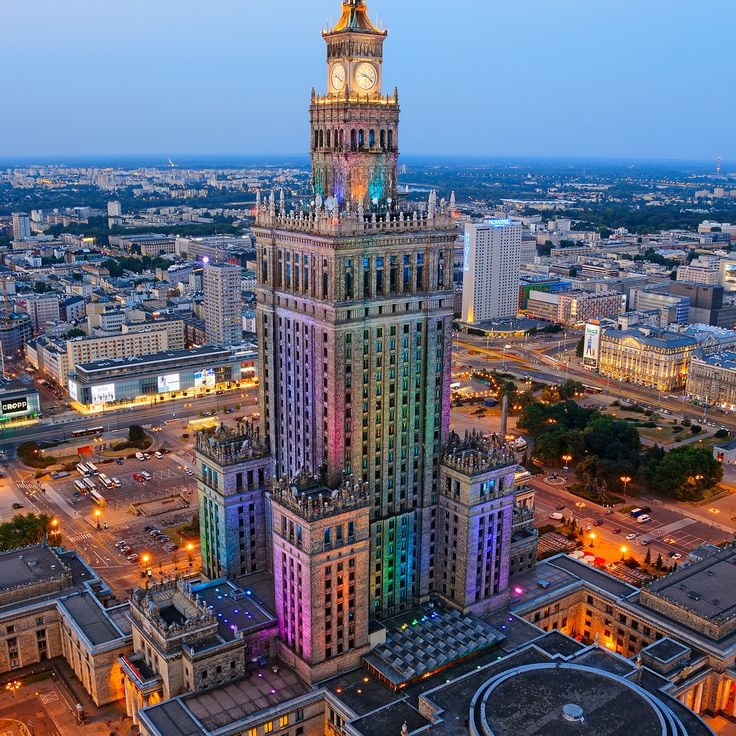
Warsaw, Poland
The Palace of Culture and Science was built between 1952 and 1955 as a gift from the Soviet Union to Poland and dominates Warsaw's skyline at 237 meters tall. Constructed in the Socialist Realist style, the building contains 3,288 rooms across 42 floors and houses numerous cultural institutions, including four theaters, a cinema, several museums, and conference halls. The observation deck on the 30th floor provides panoramic views over the Polish capital.
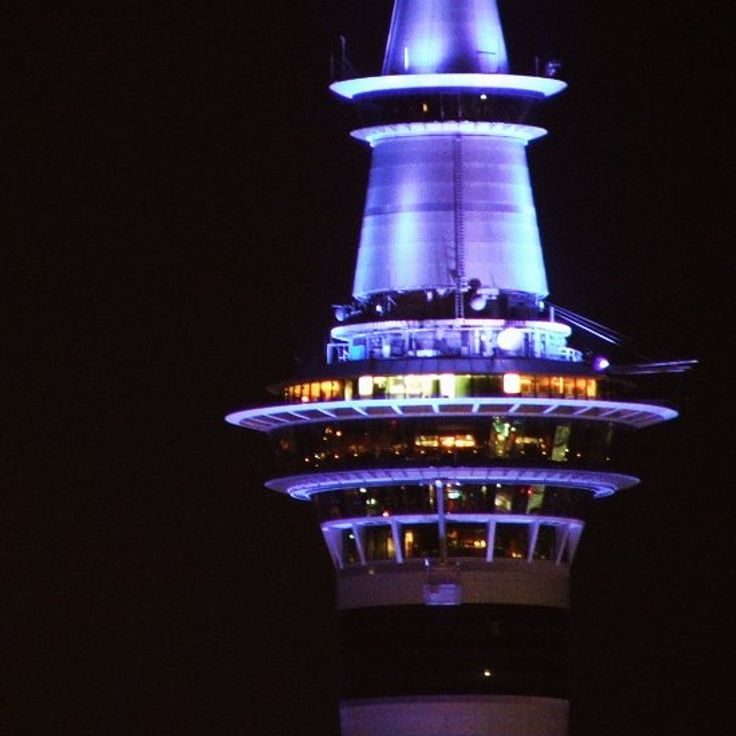
Auckland, New Zealand
The Sky Tower is a 328-metre telecommunications and observation tower in Auckland. Completed in 1997, the structure serves as a broadcasting tower for television and radio signals. The tower features three restaurants at different levels and a public observation deck at 220 metres, offering panoramic views across the city and harbour. With its distinctive spire, the Sky Tower dominates Auckland's skyline and serves as a landmark throughout the city.
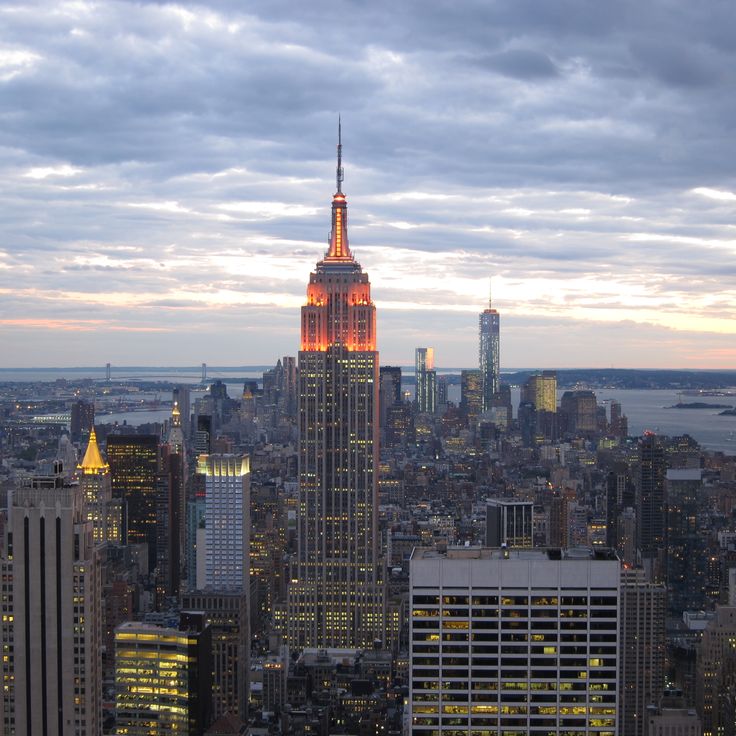
New York, United States
The Empire State Building was completed in 1931 and reaches a height of 381 meters. This Art Deco building held the record as the world's tallest structure until 1970. Construction took only 410 days and required approximately 7 million work hours. The building has 102 floors and houses offices as well as two observation decks on the 86th and 102nd floors, which receive millions of visitors annually.
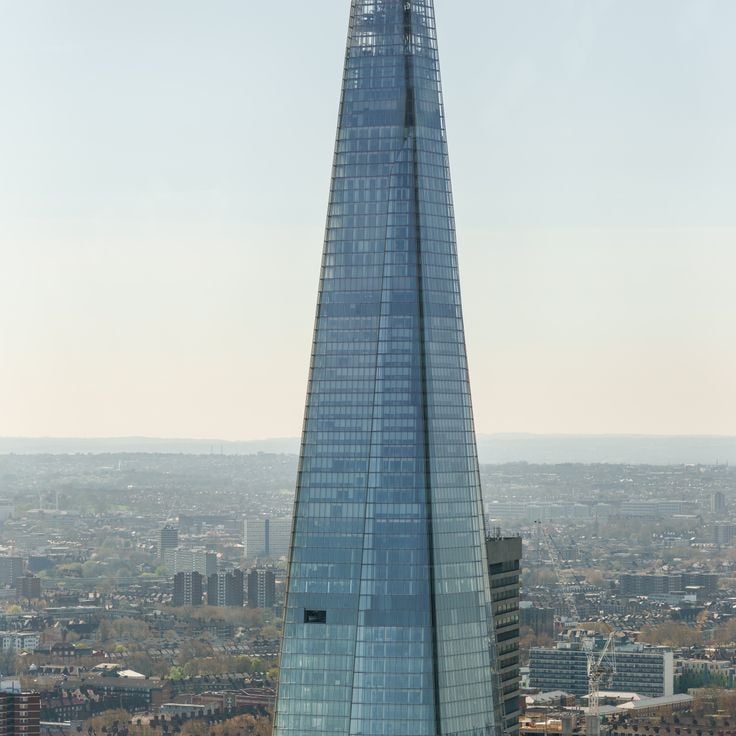
London, England
The Shard rises 310 metres above the south bank of the Thames and has dominated London's skyline since its opening in 2012. Designed by Italian architect Renzo Piano, the building features a pyramid-shaped glass façade composed of 11,000 glass panels. Its 95 floors house offices, three restaurants on levels 31 to 33, the Shangri-La Hotel occupying floors 34 to 52, and a public viewing platform on floors 68 to 72 that provides panoramic views across the British capital.
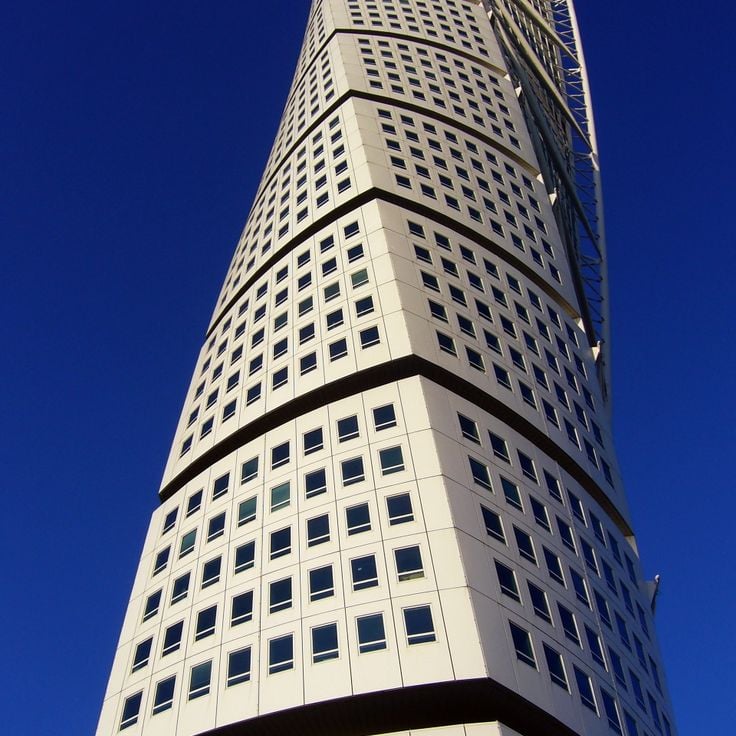
Malmö, Sweden
Turning Torso rises 190 meters above Malmö and consists of nine segments that rotate 90 degrees from base to top. Completed in 2005, the building was designed by Spanish architect Santiago Calatrava and serves primarily as a residential tower. With 54 floors, it contains 147 luxury apartments. The construction is based on a steel spine around which the floors twist in a spiral pattern. The tower marks the transformation of the former harbor area Västra Hamnen into a modern urban district and has become an architectural landmark of the city.
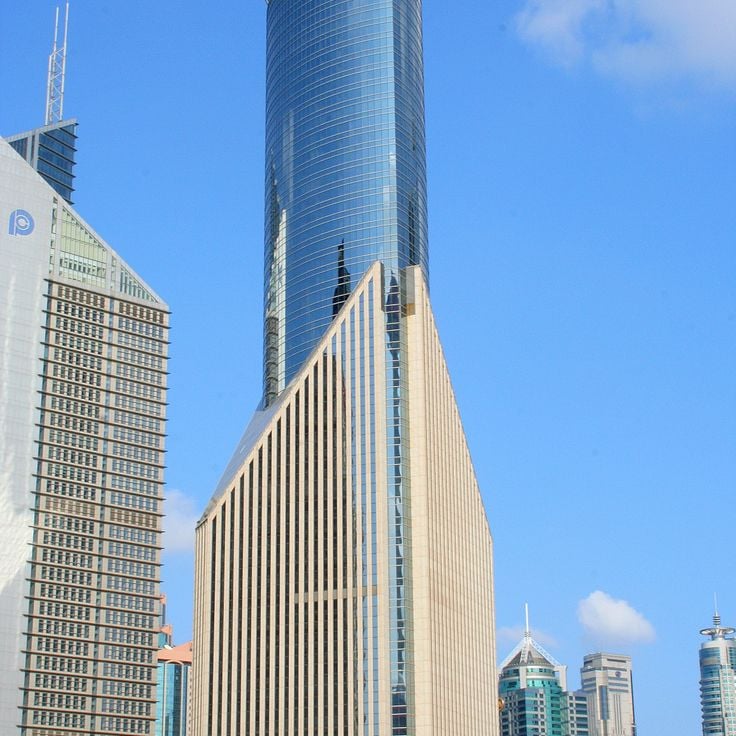
Hong Kong, China
The Bank of China Tower was completed in 1990 and reaches a height of 367 meters. The construction consists of four triangular glass prisms that taper toward the top, forming a geometric structure.
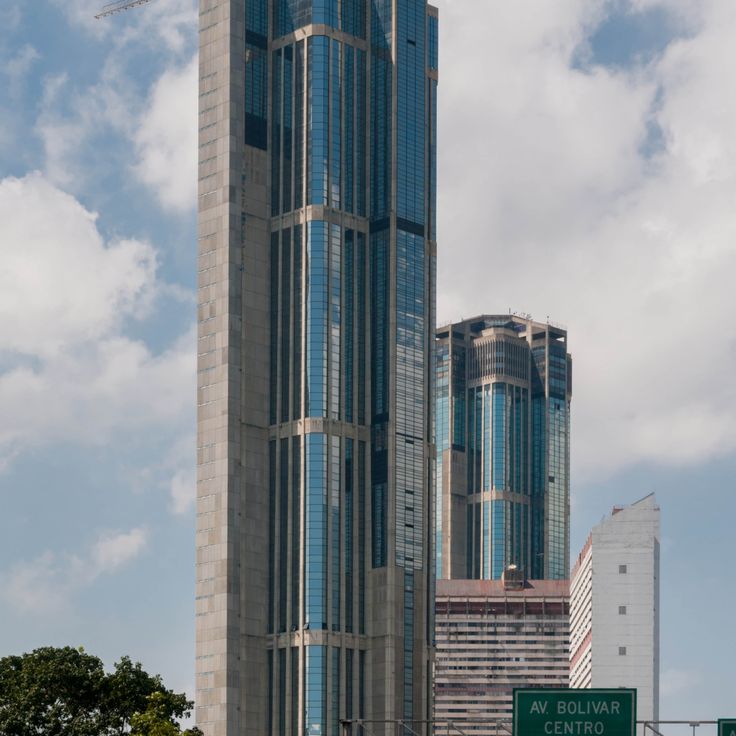
Caracas, Venezuela
The Parque Central complex occupies a large urban area in the center of Caracas and forms an architectural ensemble developed during the 1970s. The two residential towers rise symmetrically above a shared base that houses shops, offices, and cultural facilities. Each tower has 56 floors and reaches 225 meters in height. These twin towers define the skyline of the Venezuelan capital and represent significant examples of modern high-rise architecture in South America.
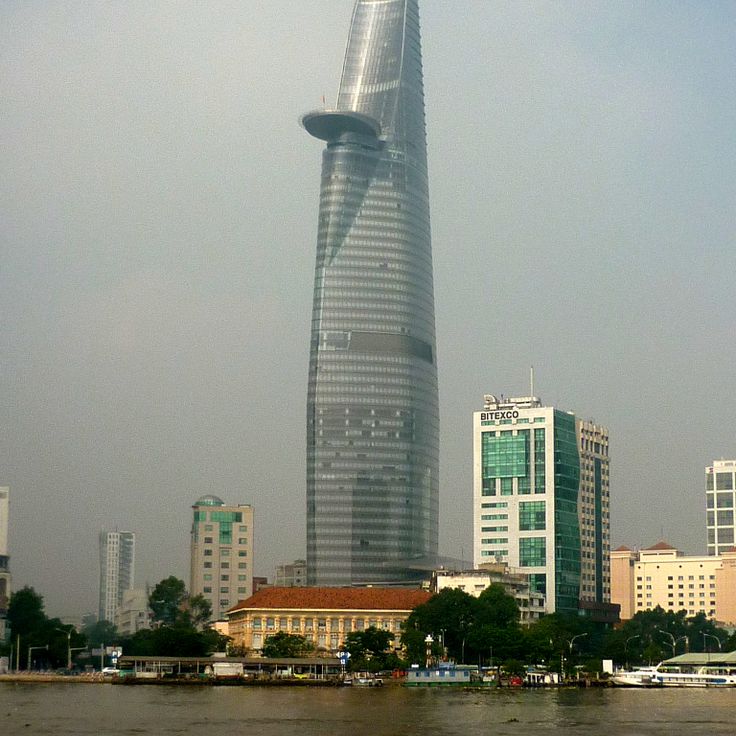
Ho Chi Minh City, Vietnam
The Bitexco Financial Tower rises 262 meters above the center of Ho Chi Minh City and ranks among the tallest buildings in Vietnam. The skyscraper's architecture draws inspiration from the lotus flower, the national flower of the country. A distinctive feature is the cantilevered helipad on the 50th floor, which extends from the facade like a petal. The 68-story building houses offices, retail spaces, and a public observation deck on the 49th floor that provides panoramic views across the metropolis.
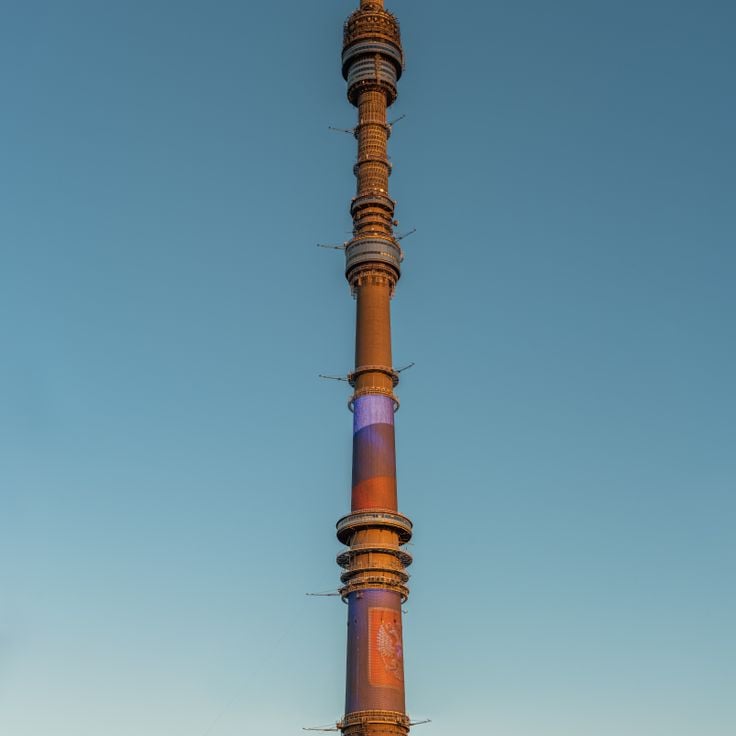
Moscow, Russia
The Ostankino Tower is a 540-meter broadcasting facility that has transmitted radio and television signals for the Moscow region since 1967. This reinforced concrete structure was built between 1963 and 1967 following the designs of architect Nikolai Nikitin. The tower features an observation deck at 337 meters and a revolving restaurant at 328 meters. The facility serves as a technical center for broadcasting television and radio programs throughout the Russian capital and its surrounding areas.
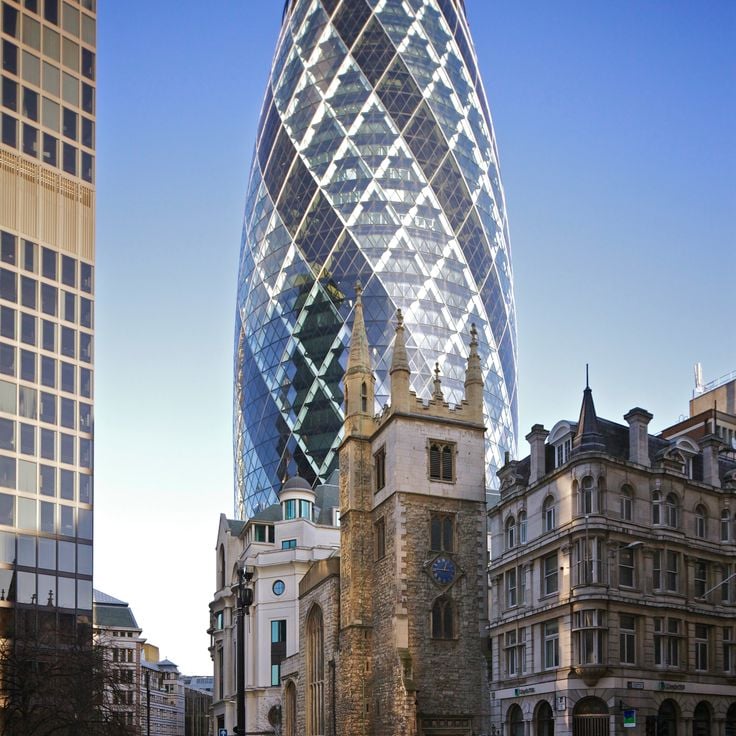
London, England
The Gherkin rises 180 meters above London's financial district and has shaped the city's skyline since 2004. Designed by Norman Foster, this office building features an aerodynamic form resembling a cucumber. The glass facade with its diamond-pattern structure consists of 24,000 square meters of glass. The building contains 41 floors and provides office space for companies in the finance and insurance sectors. Spiral light shafts arranged throughout the structure allow natural lighting and improve the tower's energy efficiency.
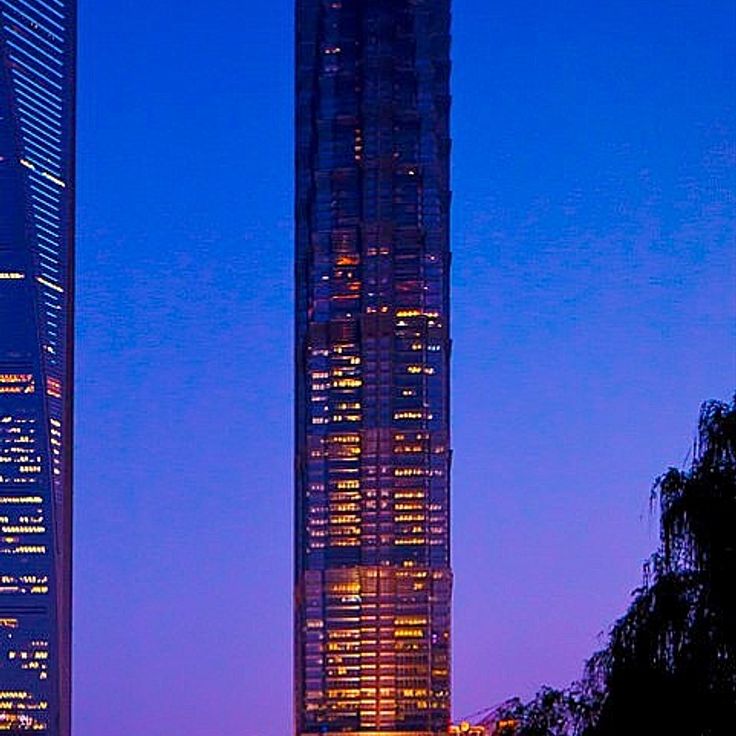
Shanghai, China
The Jin Mao Tower reaches 421 meters in height and merges contemporary construction with architectural references to Chinese pagodas. The 88 floors are divided between offices and a hotel.
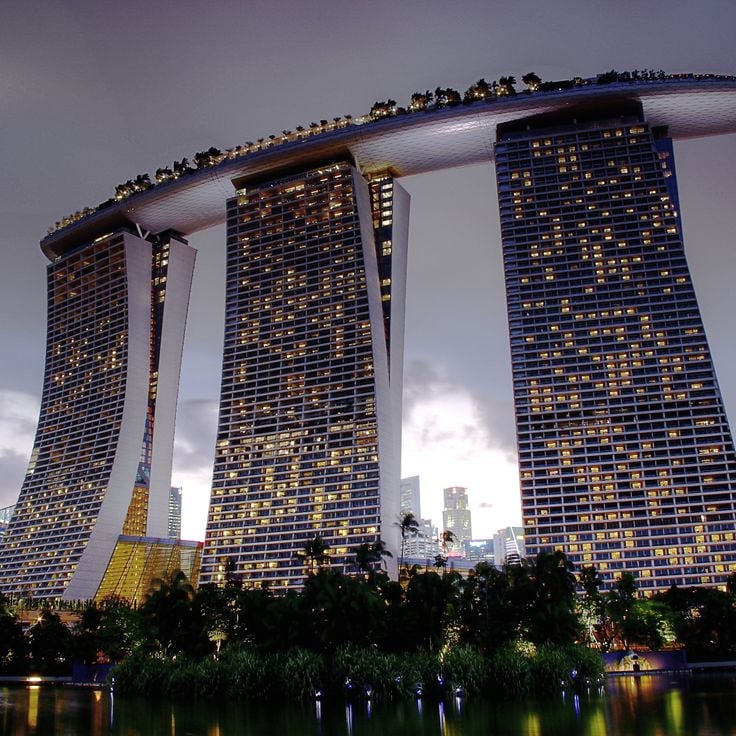
Singapore
Marina Bay Sands is an architectural landmark in Singapore's financial district. The three parallel towers rise to 55 floors and support a 340-meter rooftop platform that connects all three buildings. This platform features a public garden with tropical plants and observation areas. The complex houses a hotel, casino, convention centers, and retail spaces. Completed in 2010, the structure transformed the city's skyline and has become a reference point for modern integrated resort design.
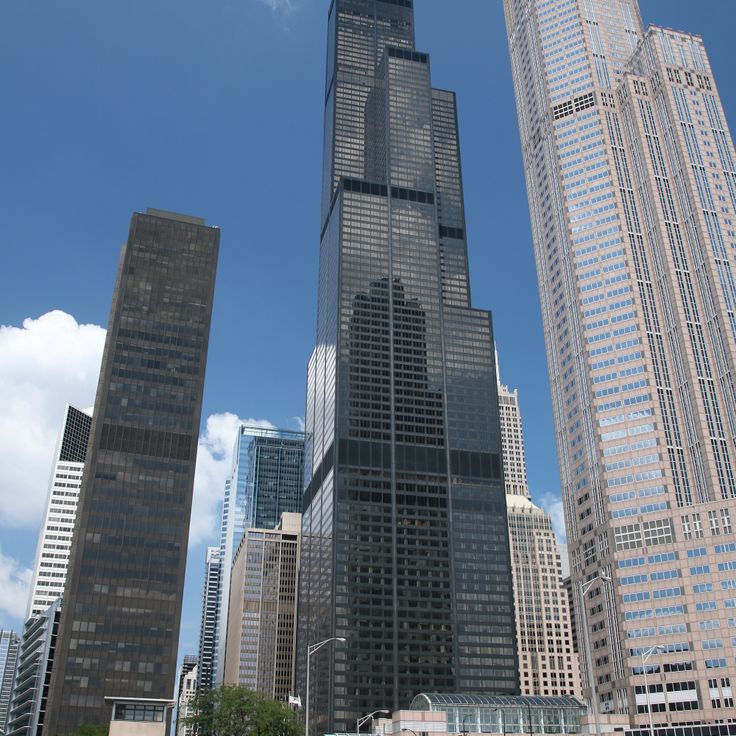
Chicago, United States
The Willis Tower, formerly known as Sears Tower, is a skyscraper with a distinctive bundled tube structural system composed of nine square tubes. The building reaches a height of 442 meters and contains 110 floors.
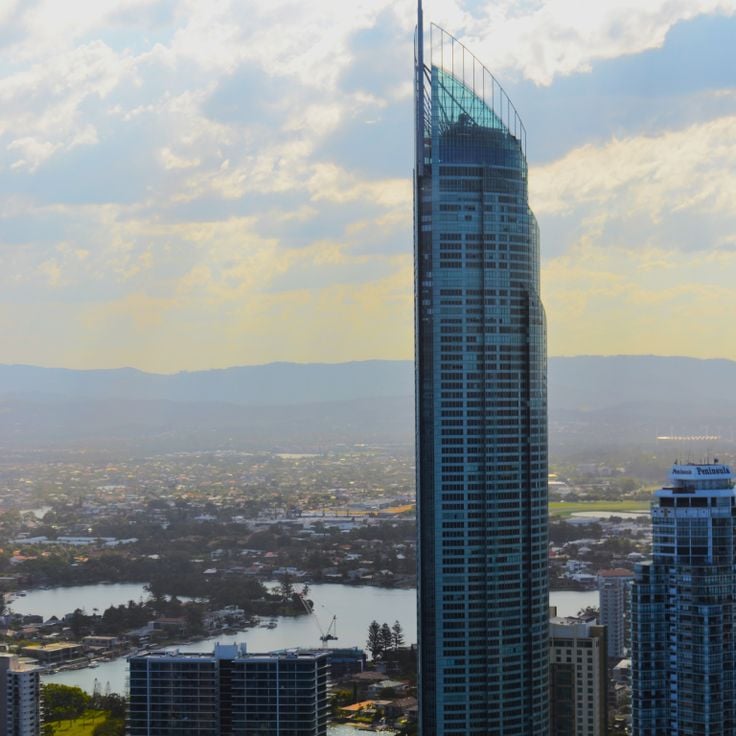
Gold Coast, Australia
This skyscraper is the tallest building in Australia and the Southern Hemisphere. The tower features residential apartments, an observation deck, and a SkyPoint platform at 230 meters.
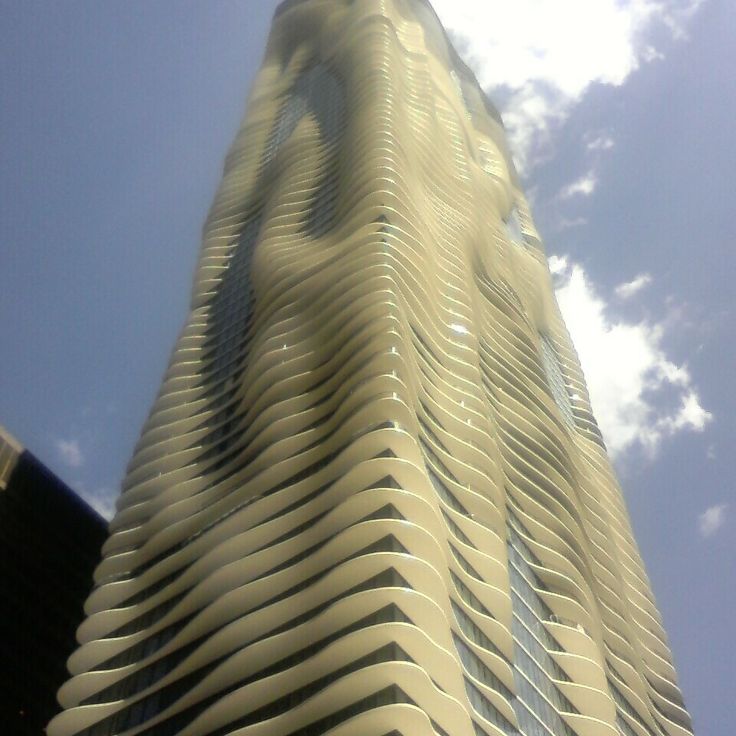
Chicago, United States
This skyscraper features undulating balconies that create a pronounced horizontal layering effect on the facade, combined with blue-green glass cladding in downtown Chicago.
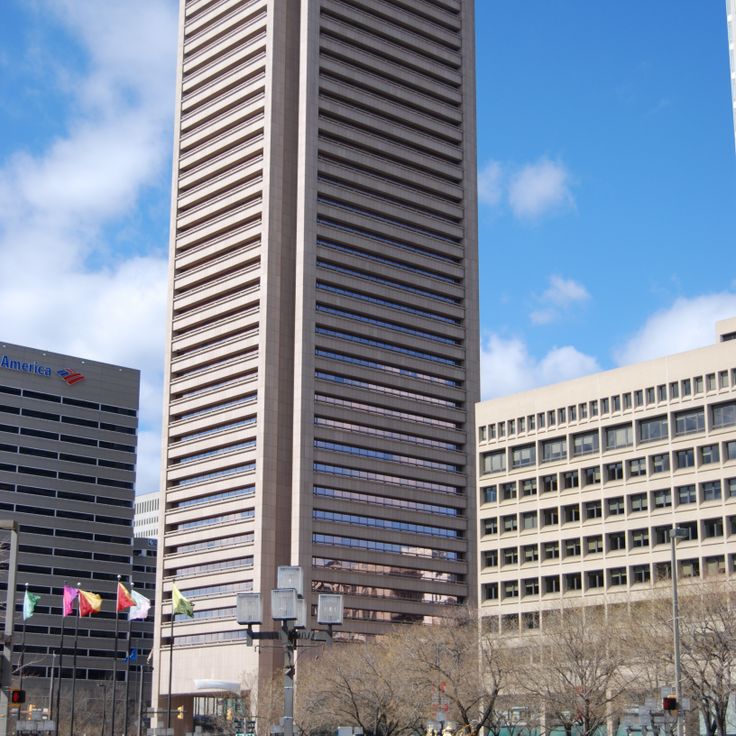
San Francisco, United States
The Transamerica Pyramid was completed in 1972 and reaches a height of 260 meters. This skyscraper features a distinctive pyramidal structure clad in white quartz panels. At its apex sits a 64-meter spire that originally served as an elevator shaft and later became a decorative element. The building contains 48 floors and held the title of San Francisco's tallest structure until 2017. Its triangular footprint and tapered form make this tower a recognizable part of the city skyline.
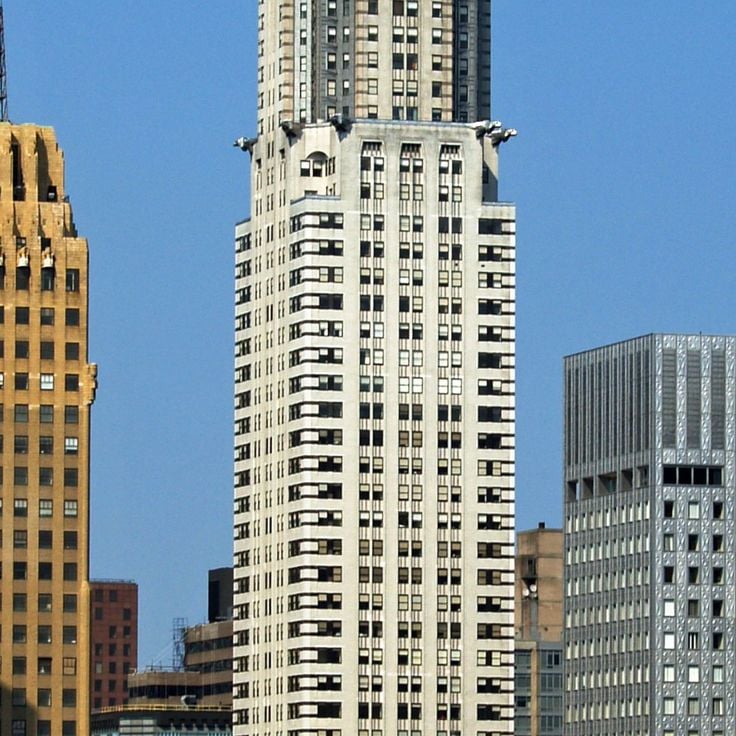
Manhattan, United States
The Chrysler Building rises 319 meters above Midtown Manhattan and was completed in 1930 in the Art Deco style. The building features architectural details inspired by the automotive industry, including stainless steel radiator cap ornaments at the corners of the 61st floor and wheel cap motifs. The distinctive spire consists of multiple terraced arches made of stainless steel with triangular windows that reflect sunlight. The skyscraper briefly held the title of world's tallest building before the Empire State Building claimed that distinction in 1931.
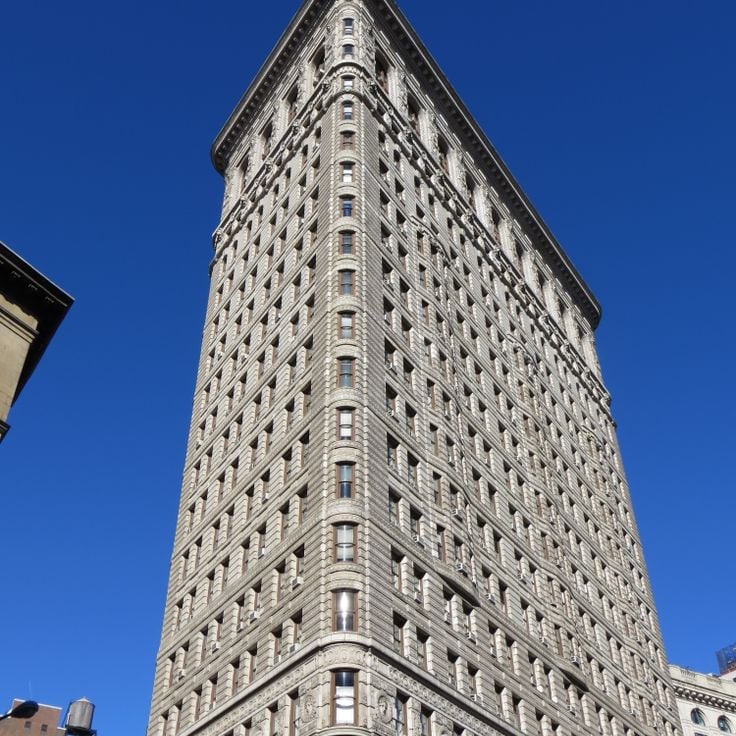
New York City, USA
The Flatiron Building was completed in 1902 with a steel frame structure and rises 285 feet on a triangular plot at the intersection of Broadway and Fifth Avenue, clad in a limestone and terracotta facade with Renaissance Revival design elements.